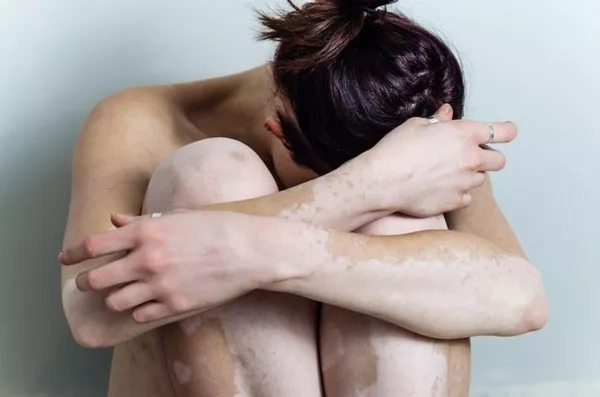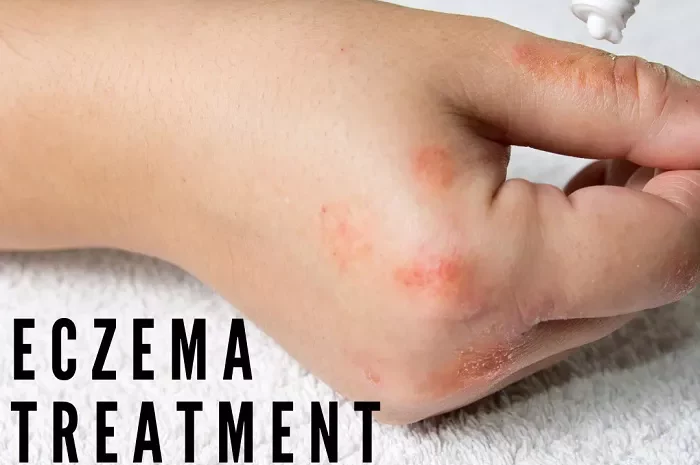Vitiligo is a skin condition characterized by the loss of pigmentation, resulting in white patches on the skin. It can affect any part of the body and is often a source of concern for those affected. While there is no definitive cure for vitiligo in conventional medicine, many people seek alternative treatments, including homeopathy. This article explores whether vitiligo can be treated with homeopathy, the principles behind it, and what research says about its effectiveness.
Understanding Vitiligo
What Is Vitiligo?
Vitiligo is an autoimmune disorder that causes the skin to lose its pigment. The body’s immune system mistakenly attacks the melanocytes, the cells responsible for producing melanin, which gives skin its color. This results in patches of skin that are lighter than the surrounding areas.
Types of Vitiligo
There are two main types of vitiligo:
Non-segmental vitiligo (NSV): This is the most common form. It typically occurs symmetrically and affects various parts of the body, including the face, hands, and limbs.
Segmental vitiligo (SV): This type appears in a specific area and may not spread as much as NSV. It usually develops in a band-like pattern.
Causes and Triggers of Vitiligo
While the exact cause of vitiligo is not fully understood, several factors may contribute to its development:
Genetics: A family history of vitiligo or other autoimmune diseases can increase the risk.
Autoimmune response: The body’s immune system may attack its melanocytes, leading to loss of skin color.
Environmental factors: Sunburn, skin trauma, or exposure to certain chemicals may trigger vitiligo in some individuals.
Hormonal changes: Some people notice the onset of vitiligo during puberty, pregnancy, or menopause.
Symptoms of Vitiligo
The primary symptom of vitiligo is the appearance of lighter patches of skin. Other symptoms can include:
Premature graying of hair: Hair in areas affected by vitiligo may turn white or gray.
Change in color of mucous membranes: The inside of the mouth or the eyes may also lose pigmentation.
What Is Homeopathy?
Definition of Homeopathy
Homeopathy is a holistic system of medicine that uses highly diluted substances to stimulate the body’s natural healing process. It is based on the principle that “like cures like,” meaning that a substance that causes symptoms in a healthy person can be used to treat similar symptoms in someone who is ill.
Principles of Homeopathy
Individualized Treatment: Homeopathy considers the individual as a whole, including their physical, emotional, and psychological aspects. Two people with the same condition may receive different remedies based on their overall health and symptoms.
Minimum Dose: Homeopathic remedies are diluted to the point that they may contain little to no molecules of the original substance. This principle is known as potentization, which is believed to enhance the remedy’s healing properties.
Holistic Approach: Homeopathy seeks to treat the underlying cause of a condition rather than just alleviating the symptoms. This approach aims to restore balance and harmony in the body.
Homeopathic Remedies for Vitiligo
Homeopathy offers several remedies that practitioners may consider for treating vitiligo. Some commonly used remedies include:
Arsenicum Album: This remedy is often recommended for patients experiencing anxiety along with vitiligo.
Bacillinum: Often used for chronic skin conditions, this remedy may be considered for those with a long history of vitiligo.
Lycopodium: This remedy may help individuals with premature graying of hair in addition to vitiligo.
Silicea: It is thought to assist in cases where the skin is unhealthy and shows signs of poor healing.
Consultation with a Homeopath
If you are considering homeopathy for vitiligo, it is essential to consult a qualified homeopathic practitioner. They will conduct a comprehensive assessment, including your medical history, lifestyle, and emotional state, to determine the most suitable remedy for you.
Effectiveness of Homeopathy for Vitiligo
Research and Studies
The effectiveness of homeopathy in treating vitiligo remains a topic of debate. While some individuals report positive outcomes, scientific studies present mixed results.
Anecdotal Evidence: Many patients claim improvement in their vitiligo symptoms after using homeopathic remedies. These reports often lack rigorous scientific validation but can provide insight into personal experiences.
Clinical Trials: Some studies have attempted to evaluate the efficacy of homeopathy for skin conditions. For instance, a study published in the journal Homeopathy found that homeopathic treatment showed some effectiveness in treating vitiligo. However, more extensive and well-controlled studies are needed to draw definitive conclusions.
Limitations of Current Research: One of the main challenges in researching homeopathy is the highly individualized nature of treatment. What works for one patient may not work for another, making it difficult to standardize studies.
Patient Perspectives
Many patients are drawn to homeopathy due to its holistic approach and minimal side effects. Some individuals with vitiligo express satisfaction with homeopathic treatments, often highlighting improved overall well-being, not just skin condition.
Risks and Considerations
Lack of Scientific Evidence
While many people may benefit from homeopathic remedies, it is crucial to recognize that the scientific community remains skeptical of homeopathy. Critics argue that there is insufficient evidence to support its effectiveness, and the principles of homeopathy conflict with established scientific understanding.
Potential for Delayed Treatment
Relying solely on homeopathy may delay seeking conventional treatments that have proven benefits. Vitiligo can progress over time, and early intervention with conventional therapies may prevent further loss of pigmentation.
Consulting with Healthcare Providers
If you choose to explore homeopathy for vitiligo, it is essential to maintain open communication with your healthcare provider. Combining homeopathic treatment with conventional options can provide a more comprehensive approach to managing the condition.
Complementary Therapies
Lifestyle Changes
In addition to homeopathy, several lifestyle changes can support skin health and potentially improve vitiligo symptoms:
Sun Protection: Protecting your skin from sun exposure can prevent further damage and worsening of vitiligo patches. Use sunscreen with high SPF and wear protective clothing.
Healthy Diet: A well-balanced diet rich in antioxidants, vitamins, and minerals can promote overall skin health. Foods high in vitamin C, vitamin E, and zinc are particularly beneficial.
Stress Management: Stress can exacerbate skin conditions, including vitiligo. Engaging in stress-reducing activities such as yoga, meditation, or mindfulness can be helpful.
Conventional Treatments
While homeopathy may be a viable option for some, it is essential to consider conventional treatments as well. These may include:
Topical Corticosteroids: These creams can reduce inflammation and help restore pigmentation in some cases.
Phototherapy: Controlled exposure to ultraviolet light can stimulate melanin production in the skin.
Depigmentation: In severe cases, some individuals may choose to depigment the remaining pigmented areas to achieve a more uniform skin tone.
Conclusion
Homeopathy presents an alternative approach to managing vitiligo that appeals to many individuals seeking a holistic treatment. While some patients report positive outcomes, the lack of scientific evidence supporting its efficacy raises questions about its reliability.
As with any treatment, it is crucial to consult with qualified healthcare professionals before starting any new regimen. Integrating homeopathy with conventional treatments may offer the best chance for managing vitiligo effectively. Ultimately, understanding your body and seeking a treatment that aligns with your beliefs and health goals is key.
If you are considering homeopathy for vitiligo, remember that individual experiences may vary. Patience and open communication with healthcare providers are vital in finding the most suitable approach for your skin health.
Related topics:



























